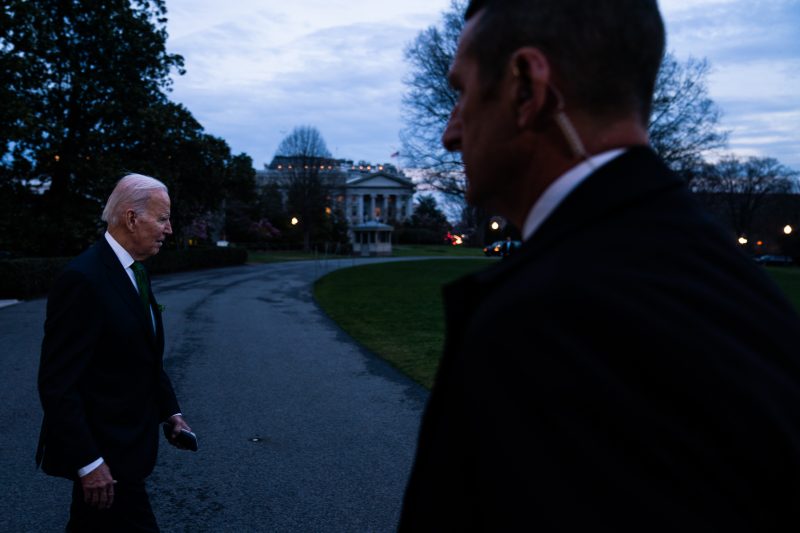
Biden issues first veto, rejecting Republican-led bill on labor rule
President Biden issued the first veto of his presidency Monday to protect a new Labor Department rule that allowed retirement plans to incorporate risk factors such as climate change and poor corporate governance in their investment decisions. His veto rejected a Republican-led bill that would have struck down the rule.
“I just signed this veto because legislation passed by Congress would put at risk retirement savings of individuals across the country,” Biden said in a statement. “They couldn’t take into consideration investments that would be impacted by climate, impacted by overpaying executives. And that’s why I decided to veto it, it makes sense to me.”
The Senate had passed the measure — known as the ESG bill — 50-46 after the House narrowly approved it 216-204, which means it does not have enough support to override a veto in either chamber.
In his letter informing Congress of the veto, Biden said the Labor Department rule “protects the hard-earned life savings and pensions of tens of millions of workers and retirees across the country” and allows retirement plan fiduciaries to make “fully informed investment decisions by considering all relevant factors.”
“The Republican-led bill would force retirement managers to ignore these relevant risk factors, disregarding the principles of free markets and jeopardizing the life savings of working families and retirees,” Biden said to Congress.
The Republican bill, he said, would stop plan fiduciaries from “taking into account factors like the physical risks of climate change and poor corporate governance, that could affect investment returns.”
“Your plan manager should be able to protect your hard-earned savings — whether Rep. Marjorie Taylor Greene likes it or not,” Biden added on social media.
The president frequently mentions Greene, the divisive, far-right Georgia Republican who interrupted Biden’s State of the Union address in February and called him a liar after he identified some Republicans who support changes to Medicare and Social Security.
In a statement, the White House doubled down on this criticism, saying the measure was the result not of an “invisible hand” of government, but of an “angry MAGA fist.”
“Meddling in private markets through adherence to an extreme MAGA ideology prevents fiduciaries from making fully informed investment decisions,” the White House statement said. “It jeopardizes the hard-earned life savings and pensions for tens of millions of cops, firefighters, teachers, and other workers across the country.”
Republicans have recently set their sights on the ESG rule amid a backlash to “wokeism” — the loosely defined concept that conservative critics use to describe policies related to climate action and diversity initiatives.
“It is clear that President Biden wants Wall Street to use your hard-earned money not to grow your savings, but to fund a far-left political agenda,” House Speaker Kevin McCarthy (R-Calif.) said in a statement.
McCarthy noted that the bill received some Democratic support, including the votes of Sens. Jon Tester (Mont.) and Joe Manchin III (W.Va.), who face tough reelection bids in 2024.
Manchin criticized Biden’s veto, saying that the administration “continues to prioritize their radical policy agenda over the economic, energy and national security needs of our country.”
“This ESG rule will weaken our energy, national and economic security while jeopardizing the hard-earned retirement savings of 150 million West Virginians and Americans,” Manchin said.
But other Democrats have defended the Labor Department rule. On the Senate floor this month, Sen. Patty Murray (Wash.) argued that those criticizing the rule have not “actually read the policy.” The rule, she argued, does not mandate ESG investing, and instead just says investors may consider these factors from all perspectives.
“The Biden rule is fundamentally neutral on how ESG factors are taken into consideration, so long as the investment fund is meeting its fiduciary obligations to its beneficiaries,” she said. “Some of the same people who are railing against this rule and against ESG investing have advocated for positions that essentially are ESG investing.”
